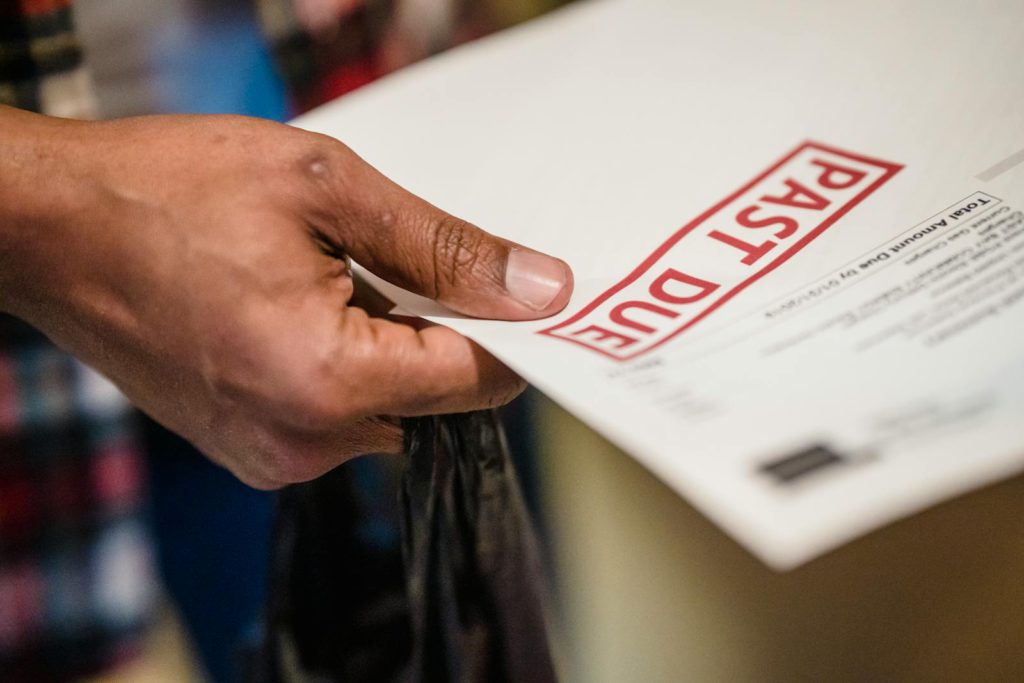I can see it in your face when we start talking about collections. You get that same look every business owner gets – like you’re about to ask me to help you kick puppies.
“I don’t want to damage the relationship,” you say. “They’re a good customer when they pay.” “What if they get mad and leave?”
Here’s what I want you to understand: customers who respect you expect you to ask for your money. Customers who don’t respect you are taking advantage of your niceness.
After 40 years of helping business owners collect what they’re owed, I can tell you this – the right approach to collections actually strengthens customer relationships. The wrong approach destroys them.
Why you’re afraid to collect your own money

Let me guess what’s going through your head when you think about calling that customer who owes you $15,000 from 60 days ago.
“What if they get angry?” They might. So what? Are you running a business or a charity?
“What if they leave?” If they leave because you asked for money you’re legally owed, they weren’t a good customer anyway.
“What if they bad-mouth me to others?” Professional customers understand business. Deadbeats complaining about being asked to pay actually helps your reputation with good customers.
“I’m not good at confrontation.” Collections isn’t confrontation. It’s business communication. Big difference.
Here’s the truth – your fear of collections is costing you more than bad customers ever will.
The relationship you’re really protecting
That “good customer” who pays 90 days late isn’t respecting your relationship. They’re using your money to run their business while you pay credit card interest to cover their slack.
Good customers want to pay you on time. They budget for your services. They understand you have bills too. When you don’t ask for your money, you’re actually confusing them about your payment expectations.
Bad customers will take advantage of you as long as you let them. They see your niceness as weakness, not professionalism.
The relationship you’re really protecting by not collecting is the relationship with customers who don’t deserve protection.
Strategy #1: the professional reminder approach

Most business owners avoid collections until they’re angry, then make hostile calls that damage relationships. Instead, start with professional, systematic reminders before emotions get involved.
Week 1 past due: the friendly check-in
“Hi Sarah, this is Jim from ABC Company. I’m calling about invoice #1234 for $8,500 that was due last week. Just wanted to check if you received it and see if there are any questions.”
Notice what I’m not doing:
- I’m not apologizing for calling
- I’m not assuming anything is wrong
- I’m giving them a chance to explain without being defensive
Most of the time, this call results in “Oh, we’ll process that right away” or “Can you resend it to our new AP person?”
Week 2 past due: the expectation setting call
“Hi Sarah, this is Jim again about invoice #1234. It’s now two weeks past due. When can I expect payment?”
That last question is key. Don’t ask “if” they’re going to pay. Ask “when.” Assume payment and ask for a specific commitment.
If they give you a date, follow up the day after that date if payment doesn’t arrive. Every time.
Week 3 past due: the serious conversation
“Sarah, this is Jim. Invoice #1234 is now three weeks past due. This account needs to be brought current immediately. What’s the problem?”
Now I’m being direct about the situation without being hostile. I’m asking what’s preventing payment, not whether they intend to pay.
Strategy #2: the payment plan partnership

Sometimes customers genuinely can’t pay the full amount immediately. Instead of writing off the invoice or getting angry, create a payment plan that works for both of you.
How to structure payment plans that work
“I understand you can’t pay the full $15,000 immediately. What if we did $5,000 now and $5,000 monthly for the next two months? Can you commit to that?”
Make sure you:
- Get the first payment before you agree to anything
- Put the agreement in writing
- Stop all new work until they’re current
- Charge interest on the outstanding balance
When payment plans make sense
Good candidates for payment plans:
- Long-term customers with temporary cash flow problems
- Customers who communicate proactively about their situation
- Businesses going through predictable seasonal challenges
Bad candidates:
- Customers who avoid your calls
- Businesses with multiple vendors complaining about slow payment
- Anyone who’s broken previous payment agreements
Don’t confuse cash flow problems with character problems. One deserves help, the other deserves firmer action.
Strategy #3: the business reality discussion

Sometimes you need to have adult conversations about money and business relationships. This isn’t confrontation – it’s clarity.
The conversation that changes everything
“John, we need to talk about your account. You’re consistently paying 75-90 days on our 30-day terms. This creates cash flow problems for us. Going forward, we need payment within 45 days, or we’ll need to adjust our business relationship.”
Notice what I’m doing:
- Stating facts, not making accusations
- Explaining how their behavior affects your business
- Setting clear expectations for the future
- Giving them a choice about how to proceed
Setting boundaries that preserve respect
Good customers appreciate clear boundaries. They want to know what you expect so they can meet your expectations.
“We’ve really enjoyed working with you, but our terms are 30 days for a reason. If you need different terms, let’s discuss what works for both of us. But the current situation isn’t sustainable.”
Most professional customers will either commit to faster payment or propose terms that work better for their cash flow. Either way, you’ve solved the problem.
Strategy #4: the incentive and consequence system

Instead of just asking for payment, create financial reasons for customers to pay quickly and consequences for paying slowly.
Early payment incentives that work
Offer 2% discount for payment within 10 days. Most customers will take this discount, accelerating your cash flow by 20 days and costing you only 2% of the invoice amount.
Compare that to the cost of carrying receivables for 60-90 days while paying interest on your own credit lines. The discount pays for itself.
Late payment consequences that motivate
After 45 days past due, add 1.5% monthly late fees to all invoices. Most customers will pay up rather than watch the balance grow.
After 60 days past due, put accounts on credit hold. No new work, no new products, no exceptions until they’re current.
Make sure these policies are clearly stated on your invoices and in your customer agreements.
The psychology of financial consequences
When payment is optional (no consequences), some customers will always choose to pay other vendors first. When payment has financial consequences, most customers prioritize your invoice.
You’re not being mean – you’re being businesslike. Professional customers understand this. Problem customers reveal themselves quickly.
Strategy #5: the professional collection process

When friendly reminders and business discussions don’t work, escalate to formal collection procedures. This isn’t giving up on the relationship – it’s protecting your business.
When to escalate to formal collection
Time to get serious when:
- Invoices reach 75 days past due
- Customers stop responding to calls and emails
- Payment plans are broken repeatedly
- Checks bounce or credit cards are declined
Don’t wait until invoices are 120 days old. The older the debt, the less likely you are to collect.
How to escalate without burning bridges
Step 1: Final demand letter via certified mail “This serves as final notice that your account is seriously past due. Unless payment is received within 10 days, this account will be forwarded for collection.”
Step 2: Collection agency or attorney Use professionals who understand business collections. They know how to be firm without being abusive.
Step 3: Document everything and move on Some customers won’t pay no matter what you do. Don’t chase bad money with good time. Focus on customers who value your relationship.
What happens when you start collecting properly

Here’s what changes when you implement systematic collection procedures:
Your cash flow improves immediately. Instead of carrying 60-90 day receivables, you start collecting in 35-45 days. That’s thousands of dollars back in your working capital.
Good customers respect you more. They see you as professional and businesslike. Many will start paying faster because they know you’re serious about your terms.
Bad customers reveal themselves quickly. Instead of stringing you along for months, problem customers show their true colors within 60 days. You can make decisions based on facts instead of hopes.
You stop subsidizing other people’s businesses. When customers pay on time, you’re not carrying the financing burden for their operations.
Your stress level drops dramatically. You stop wondering if and when you’ll get paid. You have systems that handle collection automatically.
The collection conversation that saves relationships

Sometimes customers have legitimate problems that temporary understanding can solve. The key is having honest conversations before anyone gets frustrated.
When customers call you first
“Jim, I need to talk to you about our account. We had a major customer delay their payment, and I can’t pay your invoice on time. Can we work something out?”
This is a good customer having a bad month. Work with them.
“I appreciate you calling me instead of just going silent. What if you paid half now and half in 30 days? Can you commit to that?”
When you have to call them
“Sarah, your account is 45 days past due. What’s going on?”
Listen to their explanation. If it makes sense and they propose a realistic solution, consider working with them. If they make excuses or avoid committing to a payment date, escalate collection efforts.
The difference between good customers with temporary problems and bad customers with character problems usually becomes clear in this conversation.
Why collections actually improve customer relationships
Professional customers expect professional collection efforts. When you don’t ask for your money, they wonder:
- Do you really need the money?
- Are you disorganized?
- Should they prioritize paying someone else?
- Are you not serious about your business?
When you collect systematically and professionally, good customers see you as:
- Businesslike and professional
- Worth paying on time
- Someone who values their own services
- A vendor they can depend on to communicate clearly
The customers you lose through proper collection efforts are customers you should lose. They’re not profitable if you can’t collect from them.
Start with your worst account
Don’t try to implement all these strategies with every customer at once. Pick your worst collection problem and practice these techniques.
Usually that’s the customer who owes you the most money and has been paying the slowest. Call them today using Strategy #1. See what happens.
Most business owners are shocked at how well professional collection approaches work. Customers are more reasonable than you think – if you approach them correctly.
The key is starting before you’re angry and desperate. When you wait until you’re furious about a 120-day-old invoice, you’ve already damaged the relationship by letting it go too long.
When to get professional help

Sometimes collection problems are beyond what business owners should handle internally:
- Large amounts owed (over $10,000)
- Customers who are obviously avoiding you
- Legal complications (bankruptcy, business closure)
- Customers who become hostile or abusive
Professional collection services understand business relationships. Good agencies can collect money while preserving the possibility of future business.
The cost of professional collection (usually 25-35% of what’s collected) is almost always less than the cost of writing off the debt and losing future sales.
Call me directly at (248) 957-0300. I answer my own phone, and the conversation is completely confidential. Or if you prefer, schedule a free consultation at your convenience.
The truth about collection and customer relationships

Here’s what 40 years of helping business owners has taught me about collections:
- Customers who get angry when you ask for money you’re legally owed aren’t good customers. They’re problems disguised as opportunities.
- Customers who respect you expect you to collect from them professionally. They budget for your services and want clear communication about expectations.
- The relationship you’re afraid to damage by collecting is usually a relationship that’s already been damaged by not collecting.
- Professional collection efforts separate good customers from bad customers quickly. This is information you need to make smart business decisions.
- Every dollar you don’t collect is money taken away from serving good customers, growing your business, and supporting your family.
- Stop protecting customers who don’t deserve protection. Start treating your business like the professional operation it is.
- Your good customers are waiting for you to act like the professional you are. Don’t disappoint them by continuing to enable the bad ones.
- If you need help implementing systematic collection procedures or dealing with specific problem accounts, I’m happy to walk you through approaches that work for your situation.
Call me directly at (248) 957-0300. I answer my own phone, and the conversation is completely confidential. Or if you prefer, schedule a free consultation at your convenience.
Remember – you’re not asking for a favor when you collect money you’re owed. You’re conducting normal business operations. Act like it.











